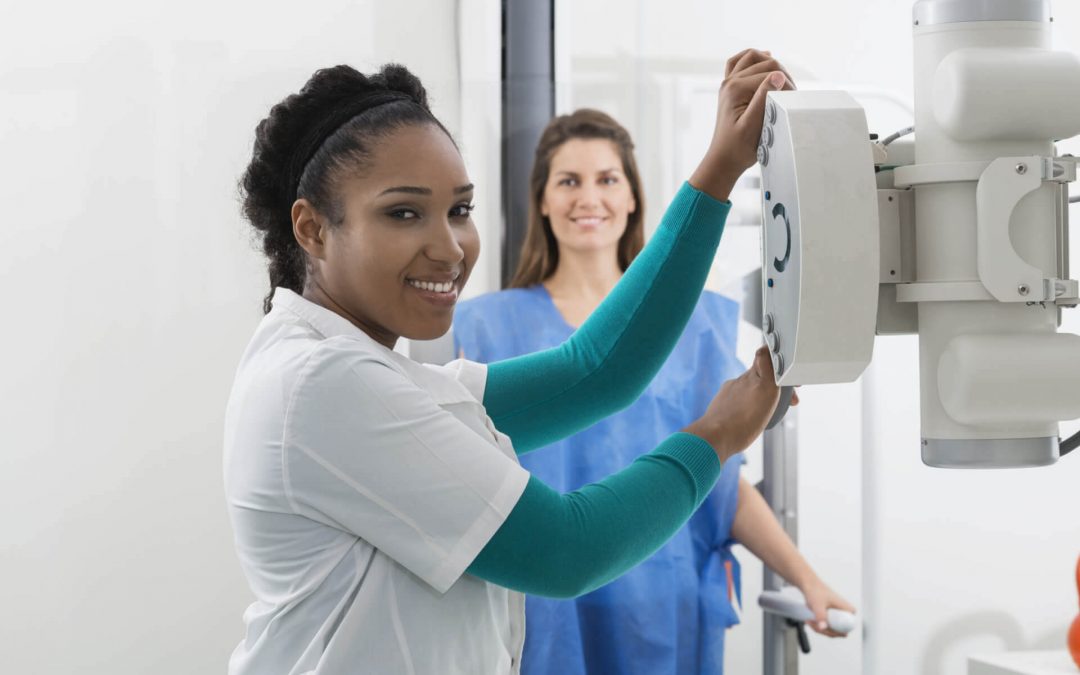Radiologic Technology
What is Radiologic Technology?
It’s the professional practice of creating medical diagnostic images through the use of ionizing radiation produced by specialized radiographic equipment.
The work requires physical activity such as lifting, standing for long periods of time, and moving heavy equipment. Operating the equipment requires physical stamina, as well as critical thinking and ability to perform mathematical calculations.
Radiologic Technologists perform direct care of patients, are highly adaptable in quick or changing circumstances, and communicate with physicians and other healthcare professionals. They must be CPR certified and hold professional licensure and certifications.
Before considering this career field, take some time to investigate the work. Observe radiographers working, speak with radiologic technology professionals, visit the Brookdale classrooms and labs, and speak with our faculty and students – these will help you better understand the profession, the learning requirements, and the job.
What form of training does Brookdale offer?
The Radiologic Technology Program is a full-time A.A.S. professional degree program. Students seeking admission to the program must meet specific program admissions requirements. Once admitted into the program, you will be in classroom instruction, laboratory practice, and clinical practice for 35-40 hours per week. During the first summer, you will participate in a 6-week, 40-hour clinical practicum, and in the second summer, a 3-week clinical practicum.
Prospective students will complete a college application and program application. For the college application Start Here!
What competencies will I acquire?
Graduates of this program will be able to:
- Perform radiography procedures at a clinically competent level for an entry-level radiographer
- Communicate effectively with patients and peers
- Use critical thinking to achieve appropriate procedure outcomes
- Demonstrate professional and ethical behaviors as a health care provider
What’s the employment outlook?
Job opportunities are expected to be very good, according to the Bureau of Labor Statistics. The NY-NJ-PA tri-state area is in the top ten metropolitan areas with the highest employment level in this occupation, with areas on the west coast making up the majority of growth.
Nationally, the annual median wage as of May 2019 was $63,120. (The median wage is the wage at which half the workers earn more than that amount, and half earn less.) The lowest 10 percent earned below $38,660, and the top 10 percent earned more than $82,590. The average hourly salary in New Jersey is $30. Read the full report here.
About the Program
The program’s current award is for the maximum of 8 years. General program accreditation information and the current accreditation award letter can be found here.
The Radiologic Technology Program is accredited for eight years by the Joint Review Committee on Education in Radiologic Technology, JRCERT, located at 20 N. Wacker Drive, Suite 2850, Chicago, IL 60606-3182 (Phone: 312-704-5300) and the New Jersey Radiologic Technology Board of Examiners, located at 25 Arctic Parkway, Trenton, NJ 08625 (Phone 609-984-5890).
 Bookstore
Bookstore  Self Service
Self Service  Video Library
Video Library 
